Eating a diet high in alkaline foods can improve cardiovascular health, bone health, muscle function, brain function, and more.
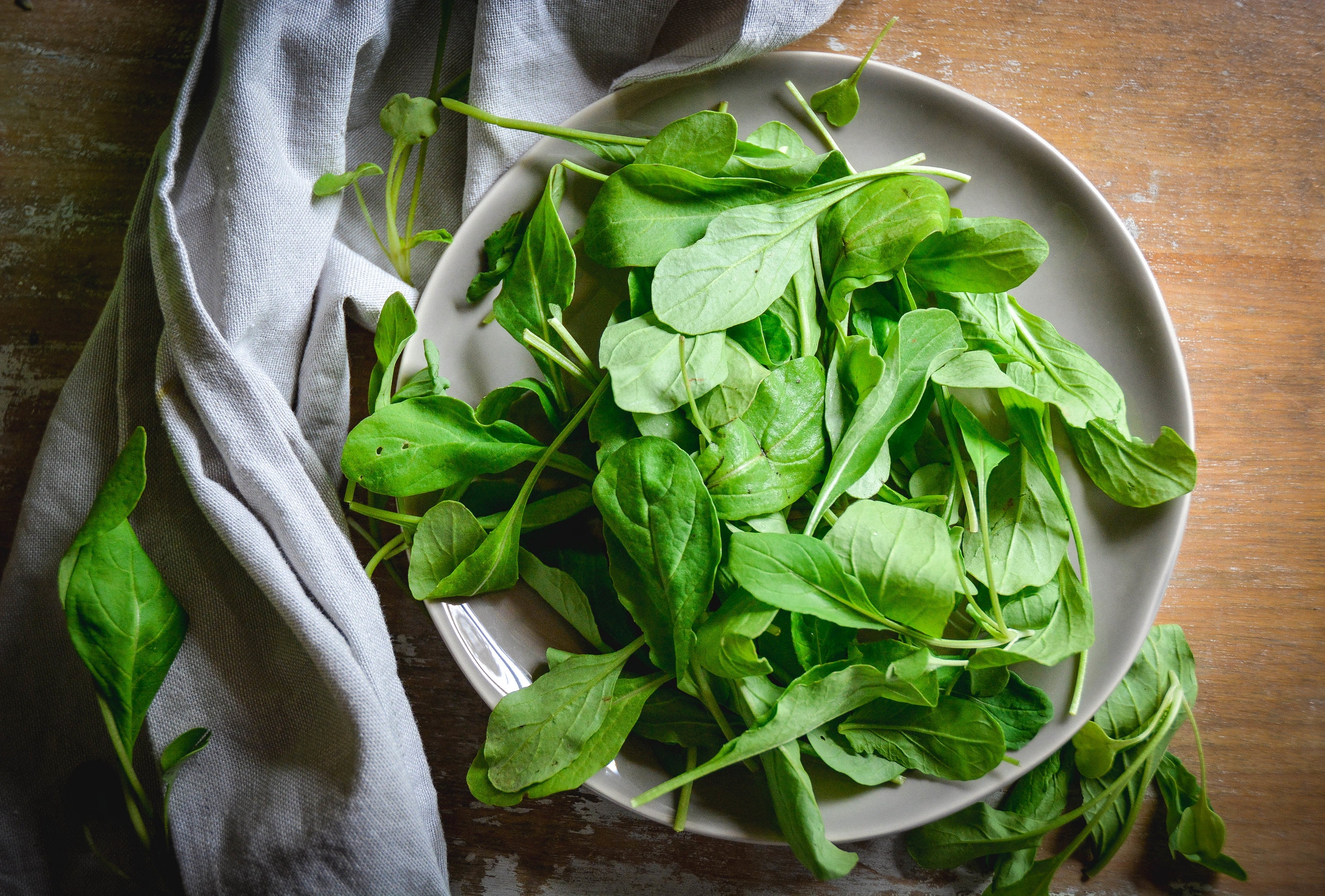
While I'm familiar with alkaline foods and have several charts hanging on the inside of my kitchen cabinet, I haven't focused on these foods' importance until now. So I wanted to learn as much as possible and share this post with you in order to add more alkaline foods to your diet.
The idea behind it is not to make your stomach alkaline - you want your stomach to be acidic and break down food, but eating low-acid foods has a whole range of benefits, as you'll see in this post.
So let's look at alkaline vs. acidic foods and also see how they relate to our well-being.
Why do we want to be alkaline?
Good question. One that most people wouldn't necessarily think of asking when considering overall health and well being. Alkalinity in the body is optimally maintained between a ph of 7.30-7.45 and our bodies work extremely hard at balancing this on a continual basis. When our bodies are too acidic, the kidneys and lungs are taxed and can no longer flush out acid properly, which starts accumulating in the body. Chronic acidity can lead to acidosis.
Symptoms of acidosis
- Fatigue
- Labored breathing
- Chronic headaches
- Digestive issues
- Excess stomach acid
- Weight gain
- Cardiovascular issues
- Diabetes
- Chronic infections
- Brittle nails and thinning hair
- Sensitive teeth and gumsWhile these symptoms are fairly broad, we always have to consider a person's diet and how their overall nutrient intake may be a contributing factor to some or all of them. This is why including plenty of alkaline foods may aid in changing the body's ph and naturally promote healing.
What are acidic foods?
- Sugar
- Certain grains
- Certain types dairy
- Processed food
- Deli meats
- Soda
- Farmed fish
- Excess meat
- Excess coffee
- Excess alcohol
Benefits of eating alkaline foods
- Reduced inflammation
- Improved immune function
- Protects bone density and muscles from degenerating
- Increased energy
- Reduced chronic pain
- Prevents magnesium deficiency
- Helps to maintain healthy weight
- Optimal cellular function
- Improved cardiovascular health
What are alkaline foods
When we talk about alkaline foods, it's important to remember that all whole foods are good and should be included in the diet. After all, a varied diet is ideal for optimal gut health. However, some fruits and vegetables have greater alkalinity so ensure that you get several of these throughout your day. While I haven't found substantial convincing evidence that following a strict alkaline diet is the end all be all, there is something to be said about including plenty of alkaline foods as part of an overall balanced diet. "A large number of studies showing the benefits of alkaline water (mineral water) have revealed that people consuming water with a high level of total dissolved solids (TDS) (ie, with a high mineral content) have shown a lower incidence of coronary heart disease (CHD), cardiovascular disease (CVD), and cancer and lower total mortality rates."
The key thing to remember with alkaline foods is that green and raw are always good options. The below are just a few examples of foods but if you want a complete list, you can find it here.
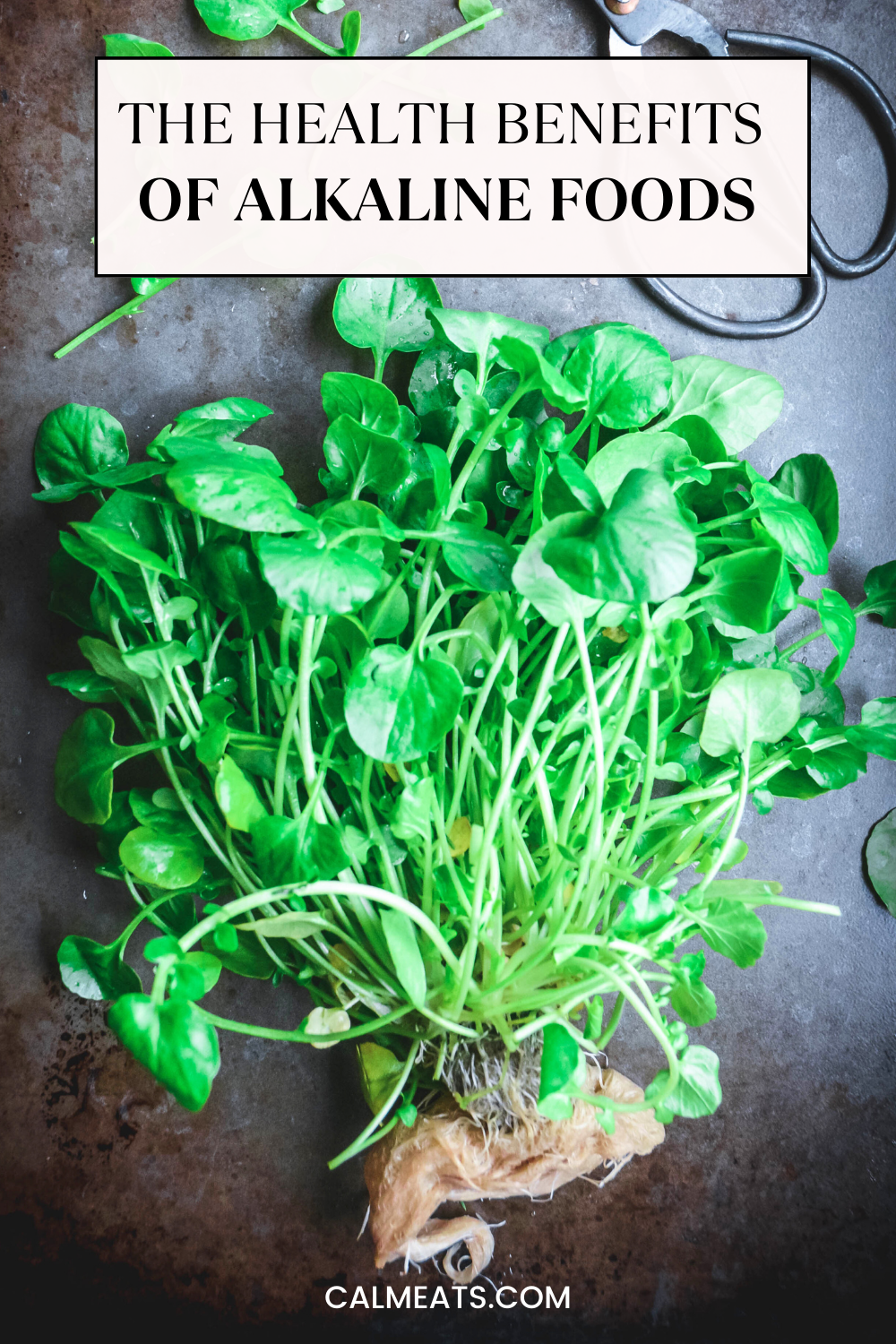
Vegetables
Broccoli, asparagus, celery, green beans, squash, zucchini, cauliflower, onions, garlic
Leafy greens
Arugula, spinach, swiss chard, mustard greens, watercress, sprouts, lettuce, kale
Fruit
Lemon, avocado, melons, apples, berries, grapefruit, fresh coconut, pomegranate, lime, tomato
Nuts and seeds
Almonds, pumpkin seeds, sunflower seeds, sesame seeds
Grains and beans
Millet, quinoa, lentils, lima beans, pinto beans
Oils
Avocado, olive, flax seed, coconut oil
"From the evidence outlined above, it would be prudent to consider an alkaline diet to reduce morbidity and mortality of chronic diseases that are plaguing our aging population."
Here are some easy options for getting some alkaline foods in your diet:
- Eat leafy greens with at least one of your meals: Dinner in my house is always served with salad. It doesn't feel complete if there isn't salad involved. By salad I mean, simple greens with homemade dressing.
- Make your own lemon vinaigrette: Mix ¼ cup olive oil, 1-2 tablespoon fresh lemon juice, ½ teaspoon salt, ¼ teaspoon pepper.
- Drink lemon water: This couldn't be simpler. Every single morning I start my day with 16oz of warm water and the juice of ½ lemon.
- Eat vegetables at every meal: I know we're all busy, but including a variety of vegetables at every meal is an easy way to ensure you're getting the proper minerals.
- Top your salads with seeds: An easy way to get more seeds and nuts is by topping your salad with them. Also, pack some to have as a snack when hunger strikes.



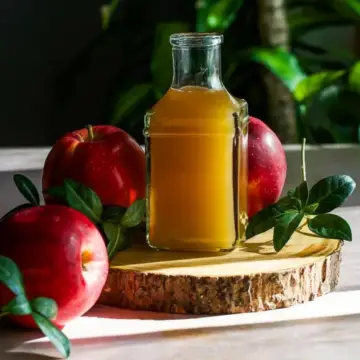
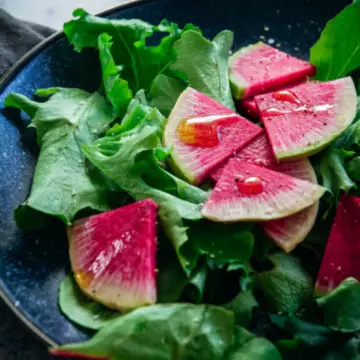
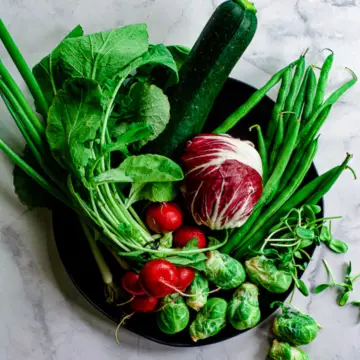
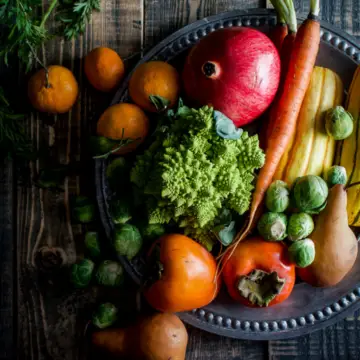

Comments
No Comments